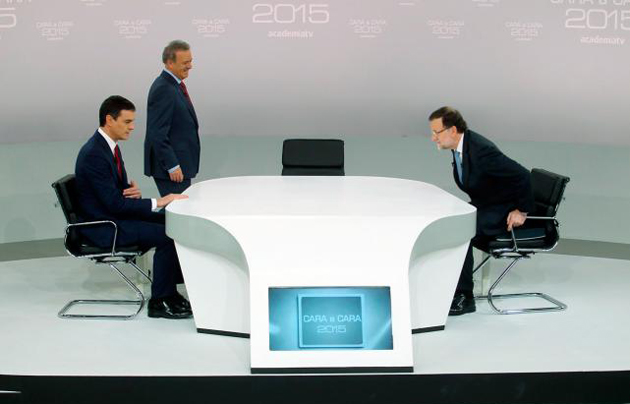The new age of dialogue
The results of the Spanish elections demand a deep change in the way of understanding politics.
MADRID · 22 DECEMBER 2015 · 09:36 CET

“Where there is strife, there is pride,
but wisdom is found in those who take advice.”
(Proverbs 13:10)
There were no surprises in the Spanish general election, according to the polls. But from a historical perspective, it is the biggest political change in 40 years of the Spanish democracy.
There has never been such a fragmented parliament. The arrival of Podemos and Ciudadanos - two emergent parties with no parliamentary presence 4 years ago - has created a scenario where not even the natural ideological alliances will allow the creation of a stable government, as it used to happen in Spain until now.
The country has been governed by broad majorities in the last 8 years. After president Zapatero (Social Democrats, PSOE), the Popular Party (Conservatives) led by Marino Rajoy obtained a big majority. In this election, the Conservatives have been the most voted party again. But they lost 63 seats. The PSOE lost 20.
The parliamentary weakness of these two big parties brings a new scenario that will also need a new way of making politics.
The outcome of the election demands that the big parties take time to sit and talk, negotiate and look for alliances to try to find a stable mandate.
This is an unprecedented situation in Spain's democracy.
These elections open a new time in the country, where it will be necessary to leave behind impositions and learn how to look together for the common good.
We hope that the absence of a clear winner will bring a new consensus in Spain. A consensus that can only be reached, like the Proverb above says, through humility, leaving pride behind.
As Dr Pablo Martinez recently said: “Dialogue is not a battlefield but a crop field. When two human beings really listen to each other, they meet each other […] In an age of fundamentalism and ruthless intolerance, this kind of dialogue is not a luxury: it is a vital necessity if we want to coexist well.”
Evangelicals can take an active role in this scenario, as Protestantism has always been respectful with freedom of conscience. The freedom of finding a place to dialogue and build something together. Even when we do not all think alike.
Published in: Evangelical Focus - europe - The new age of dialogue
